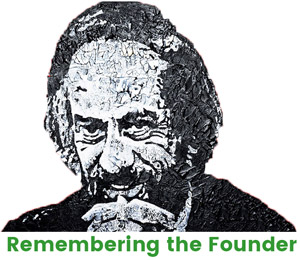Analytical Briefing on Climate Ambition and Sustainability Action
July 2019, Issue No. 2
Message from R. K. Pachauri
In the world of today we are experiencing a massive overload of information all around us. At the same time, in a case such as knowledge and information which trigger action to deal with climate change we also see an overwhelming sense of urgency, by which such knowledge needs special attention and specialised intellectual resources. The latter requirement has largely been met by the assessments carried out by the Intergovernmental Panel on Climate Change (IPCC) ever since this body was established in 1988, endorsed formally by the United Nations General Assembly. The result of actions over this period of more than thirty years has certainly created large scale awareness on the scientific reality of climate change, even though there are powerful lobbies and vested interests who remain in a state of climate denial and vigorously sow doubts in the minds of the public. Fortunately, there are groups in civil society and individuals who realise the grave threats that climate change poses to human society and all species on earth. The public at large is also convinced by what they observe today as the occurrence of extreme events and climate-related disasters, thus, validating the projections on climate change impacts brought out by the IPCC. Essentially, much of the knowledge on climate change which has spread across the globe is the result of a multiplicity of organisations and individuals exercising their initiative and moral responsibility.
The United Nations Framework Convention on Climate Change in Article 6 of the Convention has included actions to “Promote and facilitate at the national and, as appropriate, subregional and regional levels, and in accordance with national laws and regulations, and within their respective capacities: (i) The development and implementation of educational and public awareness programmes on climate change and its effects. (ii) Public access to information on climate change and its effects; (iii) Public participation in addressing climate change and its effects and developing adequate responses; and (iv) Training of scientific, technical and managerial personnel”. It also contains the provision for action at the international level, using existing institutions, where appropriate, to carry out exchange of educational and public awareness material and the implementation of training programmes. But in actual fact, the effort put in by the UN and its agencies as been far less than optimal, even though focused and well-designed efforts at dissemination of knowledge would be extremely cost effective. It is for this reason that the world must allow a thousand flowers to bloom, such that we use every means by which awareness based on knowledge can be created in every section of society. This effort must be spread through social media to reach out to the billions that are part of exchanging information through these media sources.
The POP (Protect Our Planet) Movement launched on Earth Day, 2016 mobilises youth across the globe as a collective effort motivating them as “youth inspired by knowledge”. Perhaps, the large numbers who are now following Greta Thunberg worldwide in staying away from classes in school as a form of protest should join hands with the POP Movement to lock arms together and multiply our collective efforts towards meeting a common goal.


